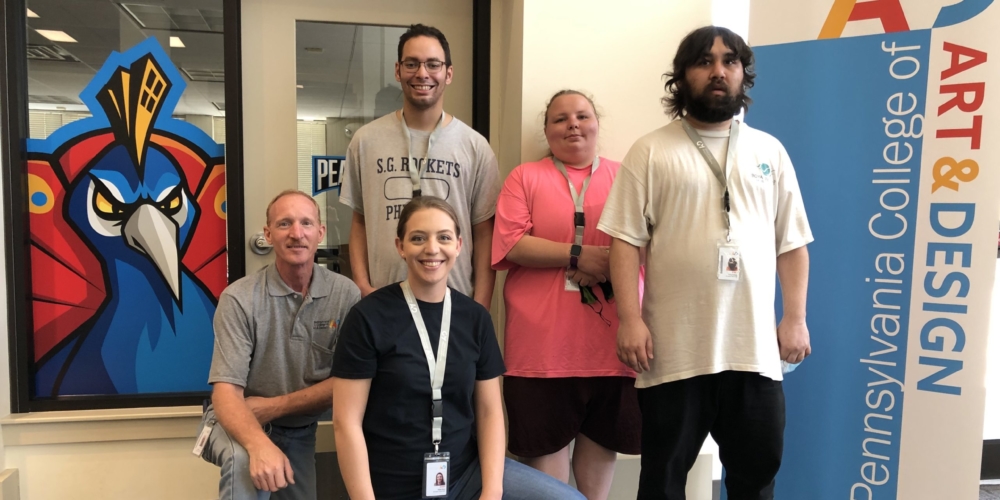
Tempo Clubhouse forms its first job training program in higher ed with PCA&D
Wednesday, June 30th, 2021
Pennsylvania College of Art & Design recently has partnered with Tempo Clubhouse to provide employment opportunities within the College’s Facilities Department. PCA&D is the first higher-education partner for the Tempo Clubhouse program, which provides an avenue back to employment for people who are receiving mental health services.
At PCA&D, Tempo employees are trained to provide specific cleaning maintenance services, and the College provides a venue for the training to happen.
It’s a collaboration that both College and Clubhouse are excited to pursue.
“The team at PCA&D has been inviting, welcoming, and flexible,” says Sarah Hurst, program director at Tempo Clubhouse. “Once we were given the green light, it’s been a smooth setup — PCA&D gets what we do.”
The arrangement with the College is to provide a place for transitional employment, “the most supported kind of employment we have,” Hurst says. “We provide candidates who can do the job, all the training, and guaranteed coverage.” As the Tempo Clubhouse members gain more experience, Hurst says, they’re also given more independence on the job. The whole goal, Hurst says, is to build a path for Clubhouse members to move into permanent employment.
In six months, the goal is to bring two more Tempo Clubhouse members in for training “so we can keep providing those opportunities,” Hurst says. “The hope is that the initial two” employees who have been working at PCA&D “then have the experience, and good references, and can launch into something.”
More about Tempo Clubhouse
The Clubhouse model is international, with more than 300 locations from Argentina to Norway, and 21 in Pennsylvania alone. Membership offers people living with mental illness opportunities not only for employment, but also for education, housing, friendship, and access to medical and psychiatric services. Locally, it operates under the umbrella of Community Services Group, a non-profit providing community-based mental health and intellectual and developmental disability services.
The foundation of the Clubhouse model, Hurst explains, is to support people who have dealt with mental health challenges as they integrate back into the community — in whatever meaningful way they choose. That might mean getting back into pursuing their education, she says, “because we have a lot of young adults whose issues disrupted their educational path. They’re now more stable so, for them, the job is to figure out a way to get back into their education.”
Clubhouse members choose what services they’d like to use, Hurst says. In the job program, what Hurst calls “the backbone of everything we do,” Clubhouse employees work to match members’ skills with available positions. In PCA&D’s case, that means a partnership that originated with PCA&D President Michael Molla, and then spread to involve Michele Wherley, the College’s Human Resources & Administration Manager, and Facilities Manager Dan Freiler.
For the past several weeks, Tempo members Jasmine Brown and Greg Eschbach have been acclimating to their campus facilities duties, accompanied by their Rehabilitation Specialists and Coach/Trainers, Mollie Divet and Nicky Ford.
Other programs focus on treatment, such as medicines and therapy, Hurst says. “We focus on life, building an independent life within the community.”
Tempo Clubhouse, she says, “is very selective about our partners. We look for employers who want a true partnership, not just to have a job filled.”
Since his arrival to the College, President Molla has focused on “Creativity-Partnerships-Lancaster” as a way to form collaborative, entrepreneurial opportunities to enhance and support the student experience all while centering the College as a locus for creativity in the heart of Lancaster city.
Photo: From left, PCA&D Facilities Manager Dan Freiler with Tempo Clubhouse team members Nicky Ford, Mollie Divet, Jasmine Brown, and Greg Eschbach.
